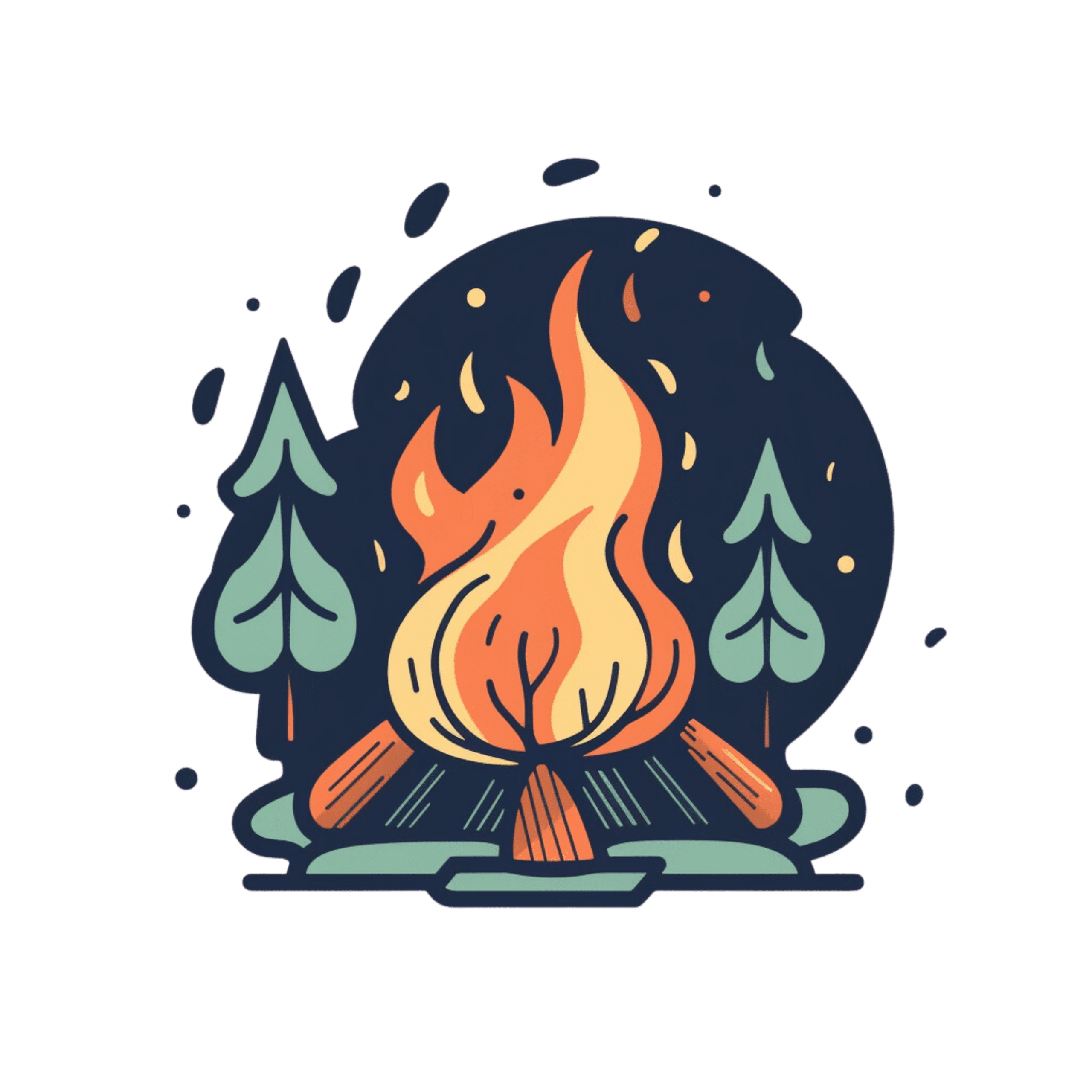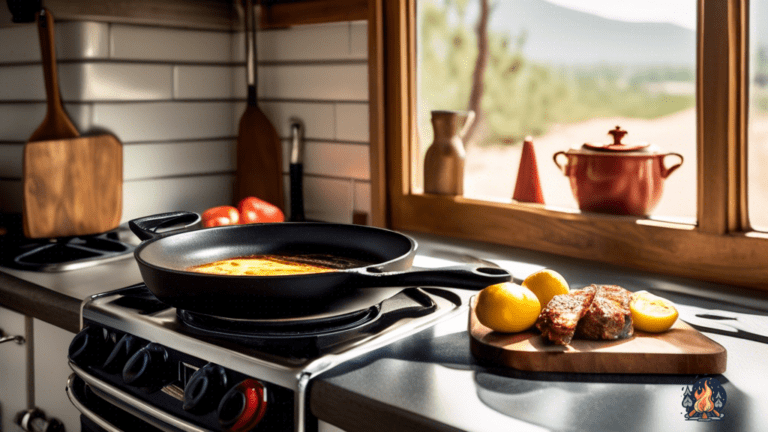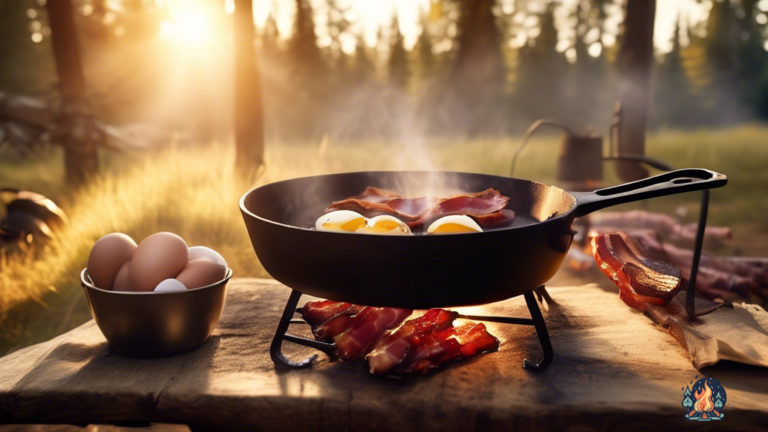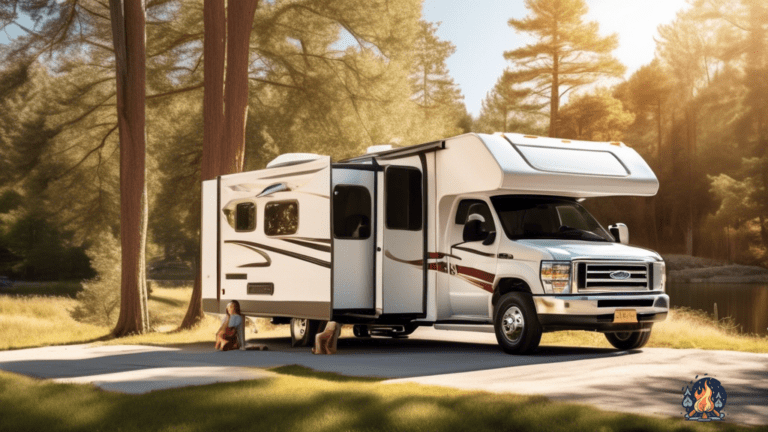Essential Camping Safety Tips For Outdoor Enthusiasts
by Kevin Fairbanks • Updated: January 30, 2024
Stay safe and enjoy the great outdoors with these essential camping safety tips. Don’t let your adventure turn into a nightmare – read now to ensure a worry-free camping experience!
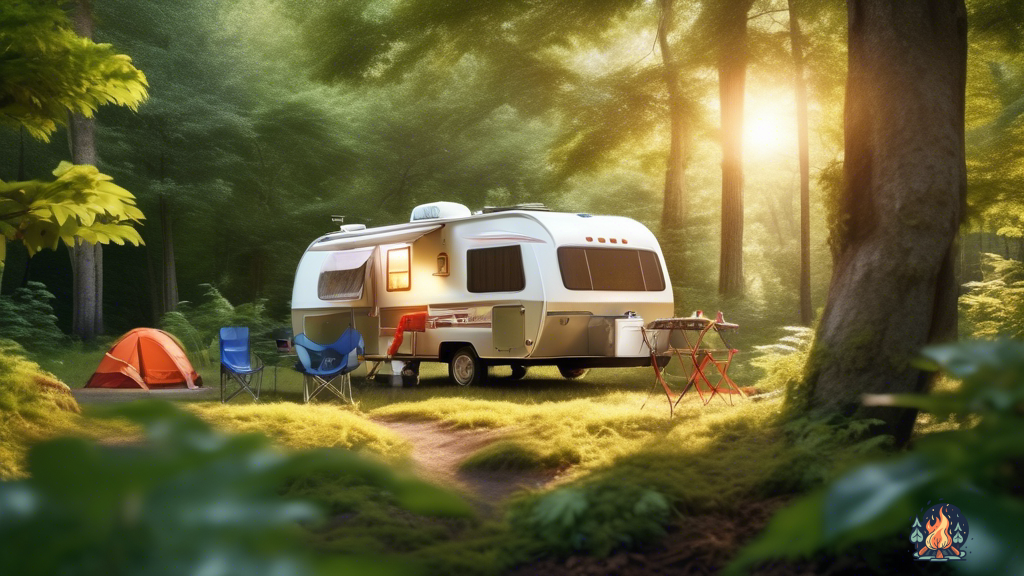
Are you ready to embark on an outdoor adventure and experience the wonders of nature? Well, grab your gear and get ready, because this article is packed with essential camping safety tips that will ensure a smooth and enjoyable journey.
Whether you’re a seasoned camper or a first-timer, these tips will help you navigate the wilderness with confidence and keep you out of harm’s way.
Picture this: you’re in the middle of a dense forest, surrounded by towering trees and the soothing sound of chirping birds. The crisp air fills your lungs as you set up camp, feeling a sense of freedom and tranquility.
But hold on, before you get too lost in the beauty of it all, let’s talk about safety. Camping is all about having fun, but it’s important to remember that nature can be unpredictable. From choosing the right campsite to being prepared for wildlife encounters, we’ve got you covered.
So, let’s dive in and make sure your camping trip is not only memorable but also safe and secure.
Key Takeaways
- Choose the right campsite based on terrain, proximity to water sources, and accessibility.
- Set up camp properly on level ground and clear potential hazards.
- Follow tent setup instructions carefully to ensure a safe and secure shelter.
- Practice fire safety and campfire etiquette, such as using designated fire pits, having water nearby, and extinguishing the fire completely before leaving.
Choosing the Right Campsite
When it comes to finding the perfect campsite, it’s crucial to consider factors such as terrain, proximity to water sources, and accessibility to ensure a safe and enjoyable camping experience.
Picture this: you’re setting up your tent on a rocky slope, struggling to keep your balance as you stake down the corners. Suddenly, a gust of wind comes out of nowhere and sends your tent flying like a kite. Not exactly the peaceful camping experience you were hoping for, right?
So, when choosing a campsite, make sure to find a level area with solid ground. This will not only make setting up your tent a breeze (pun intended), but it will also prevent any unexpected accidents or mishaps.
Another important factor to consider is the proximity to water sources. Trust me, there’s nothing worse than realizing you forgot to bring enough water and having to trek miles to find a river or lake. So, when scouting for a campsite, keep an eye out for nearby water sources. This will not only provide you with a convenient and readily available water supply, but it will also give you the chance to indulge in some fun water activities like swimming or fishing. Just remember to bring a water filter or purification tablets to ensure the water is safe to drink.
Lastly, accessibility is key. You don’t want to find yourself in a remote location that requires a 10-hour hike just to reach civilization. Sure, it might sound adventurous at first, but when nature calls and you’re in desperate need of a bathroom, you’ll wish you had chosen a more accessible campsite. So, look for campsites that are easily accessible by car or foot, and preferably not too far from the nearest town or ranger station. This way, you’ll have the convenience of modern amenities and emergency assistance within reach, while still being able to immerse yourself in the beauty of the great outdoors.
Setting Up Your Campsite Properly
To ensure a successful camping experience, it’s crucial that you properly set up your campsite.
First things first, you need to find a level and clear area to pitch your tent. Avoid setting up camp on a slope unless you want to wake up feeling like you’re in a funhouse. Trust me, trying to sleep at an angle is not as relaxing as it sounds.
Once you’ve found the perfect spot, make sure to clear away any rocks, sticks, or other potential hazards. You don’t want to be rolling around in your sleeping bag and suddenly discover that you’re sharing it with a sharp rock or a surprise pinecone. Ouch!
Next, it’s time to set up your tent. Now, I know reading instructions can be as thrilling as watching paint dry, but trust me on this one – it’s worth it. Take the time to actually read the instructions and follow them step by step. If you skip ahead and think you can wing it, you might find yourself with a tent that resembles more of a twisted pretzel than a cozy shelter. And let’s be honest, sleeping under the stars is great and all, but not when those stars are actually raindrops.
So, take a deep breath, grab that instruction manual, and make your tent the envy of the campground. You’ll thank me later when you’re snug as a bug in a non-pretzel-shaped rug.
Fire Safety and Campfire Etiquette
Fire safety is crucial while camping, and it’s interesting to note that approximately 85% of wildfires in the United States are caused by human activity. So, let’s talk about how to keep your campfire under control and avoid becoming the next accidental arsonist. To make things a little more fun, I’ve created a handy table to help you remember some important campfire do’s and don’ts:
| Do’s | Don’ts |
|---|---|
| Use a designated fire pit | Start a fire during a fire ban |
| Keep a bucket of water nearby | Leave the fire unattended |
| Use small, dry wood | Throw trash into the fire |
| Extinguish the fire before leaving | Build a fire too close to trees or tents |
Now that you have this table, you can impress your camping buddies with your fire safety knowledge. Remember, using a designated fire pit and keeping a bucket of water nearby are essential for preventing your campfire from turning into a raging inferno. And please, for the love of marshmallows, make sure to extinguish the fire before you leave. We don’t want any accidental forest fires on our hands. Happy camping, and remember, only you can prevent forest fires (and keep those s’mores deliciously toasty)!
Wildlife Awareness and Safety Measures
Beware of wild animals while camping to ensure your well-being. While it may be tempting to try and make friends with the furry creatures that inhabit the great outdoors, it’s important to remember that they are, in fact, wild.
So, unless you want to end up as a bear’s afternoon snack, it’s best to keep your distance. You might think you’re being clever by leaving out food to attract wildlife, but trust me, it’s not a good idea. Not only is it dangerous for you, but it’s also harmful to the animals. They become dependent on human food and lose their natural instincts to hunt and forage.
So, do yourself and the animals a favor and keep your snacks to yourself.
Now, I know what you’re thinking. How am I supposed to enjoy the great outdoors if I can’t even share a meal with a raccoon? Well, fear not! There are still plenty of ways to appreciate wildlife without putting yourself in harm’s way.
First and foremost, always store your food properly. Invest in some bear-resistant containers or hang your food high up in a tree. This will help keep hungry critters from raiding your campsite in the middle of the night.
And speaking of night, make sure to keep your campsite clean and free of food scraps. The last thing you want is a raccoon party happening right outside your tent while you’re trying to catch some Z’s.
So, remember, while wildlife can be fascinating and beautiful, it’s best to admire them from a safe distance.
Are the Essential Camping Safety Tips also included in the Top Camping Tips for an Outdoor Adventure?
Yes, essential camping safety tips are crucial for a successful outdoor adventure. They are included in the top camping tips for outdoor adventure to ensure a safe and enjoyable experience. Always be prepared for any situation and prioritize safety while exploring the great outdoors.
Essential Gear and Equipment for a Safe Camping Experience
Packing the right gear and equipment is crucial for a successful and enjoyable camping trip. First things first, don’t forget the tent! You don’t want to end up sleeping under the stars and getting eaten alive by mosquitoes, unless that’s your idea of a good time. And speaking of mosquitoes, make sure you bring some bug spray. Those little buggers can ruin your outdoor experience faster than you can say "itchy bites."
Next, let’s talk about food. Sure, you can survive on granola bars and beef jerky, but where’s the fun in that? Bring a cooler and stock it up with some delicious meals. And don’t forget the s’mores ingredients! Because what’s camping without a gooey, chocolatey mess?
Now, let’s move on to the essential camping accessories. You’ll definitely want a good camping chair to relax in after a long day of hiking. And trust me, you’ll appreciate a comfy sleeping bag when you’re trying to catch some Zs in the great outdoors. Oh, and don’t forget a headlamp. It’s like a flashlight, but way cooler because you can wear it on your head and pretend you’re a miner exploring a dark cave.
So, remember, when it comes to camping gear, be prepared and have a sense of humor. Because you never know when you’ll need to whip out that inflatable unicorn floatie for a spontaneous river adventure.
Happy camping!
Frequently Asked Questions
What are some common mistakes to avoid when choosing a campsite?
When choosing a campsite, avoid these common mistakes: setting up near water without considering flooding, pitching your tent under a dead tree (no one wants a surprise branch bonk!), and forgetting to check for ant hills or poison ivy. Stay safe and laugh the night away!
How can I efficiently pack and organize my camping gear for easy setup?
Got too much gear? No worries! Pack smart and keep it simple. Remember, u0026quot;Less is more.u0026quot; Roll your clothes, use packing cubes, and label everything for easy setup and stress-free camping. Happy camping!
Are there any specific rules or guidelines for cooking food over a campfire?
When it comes to cooking food over a campfire, there are a few rules to keep in mind. First, make sure you have a designated cooking area. Second, never leave the fire unattended. And most importantly, don’t forget the marshmallows! Happy cooking!
What precautions should I take to prevent encounters with dangerous wildlife?
To avoid unwanted encounters with wildlife, take a leaf out of the old adage book: u0026quot;Leave no trace, keep wildlife safe.u0026quot; Store food properly, avoid leaving scraps, and respect their space. Remember, it’s their home, you’re just a visitor.
Is there any essential gear or equipment that is often overlooked but important for a safe camping experience?
Don’t forget the holy trinity of camping gear: duct tape, a headlamp, and a multi-tool. They may not be glamorous, but they’ll save your bacon in more ways than you can imagine.

Hi, I’m Kevin, a lifelong camping enthusiast and the voice behind Campfire Discoveries. From tent to RV to cabin camping, I’ve explored it all. Join me as we share stories and tips around the campfire, deepening our connection with the great outdoors.
Keep Reading
-
Mastering Cast Iron Cooking In Your RV Kitchen
Unleash the Flavors of Cast Iron Cooking in Your RV Kitchen – Become a Master Chef on the Road! Click now to discover the secrets and master your culinary skills while traveling.
-
Delicious Camping Breakfast Ideas For A Good Morning
Fuel your camping adventure with these irresistible breakfast ideas that will make your mornings in the great outdoors unforgettable. From hearty skillet meals to tasty campfire treats, discover delicious camping breakfast ideas and start your day off right! Don’t miss out – click here for a mouthwatering morning feast!
-
How To Repair Your RV Slide Outs
Discover the step-by-step guide to fixing your RV slide outs and enjoy a hassle-free adventure on the road. Get expert tips on RV slide out repair now!
